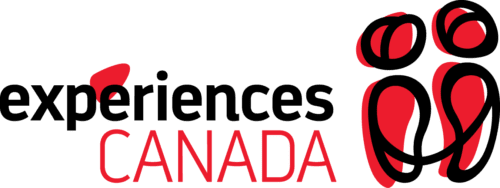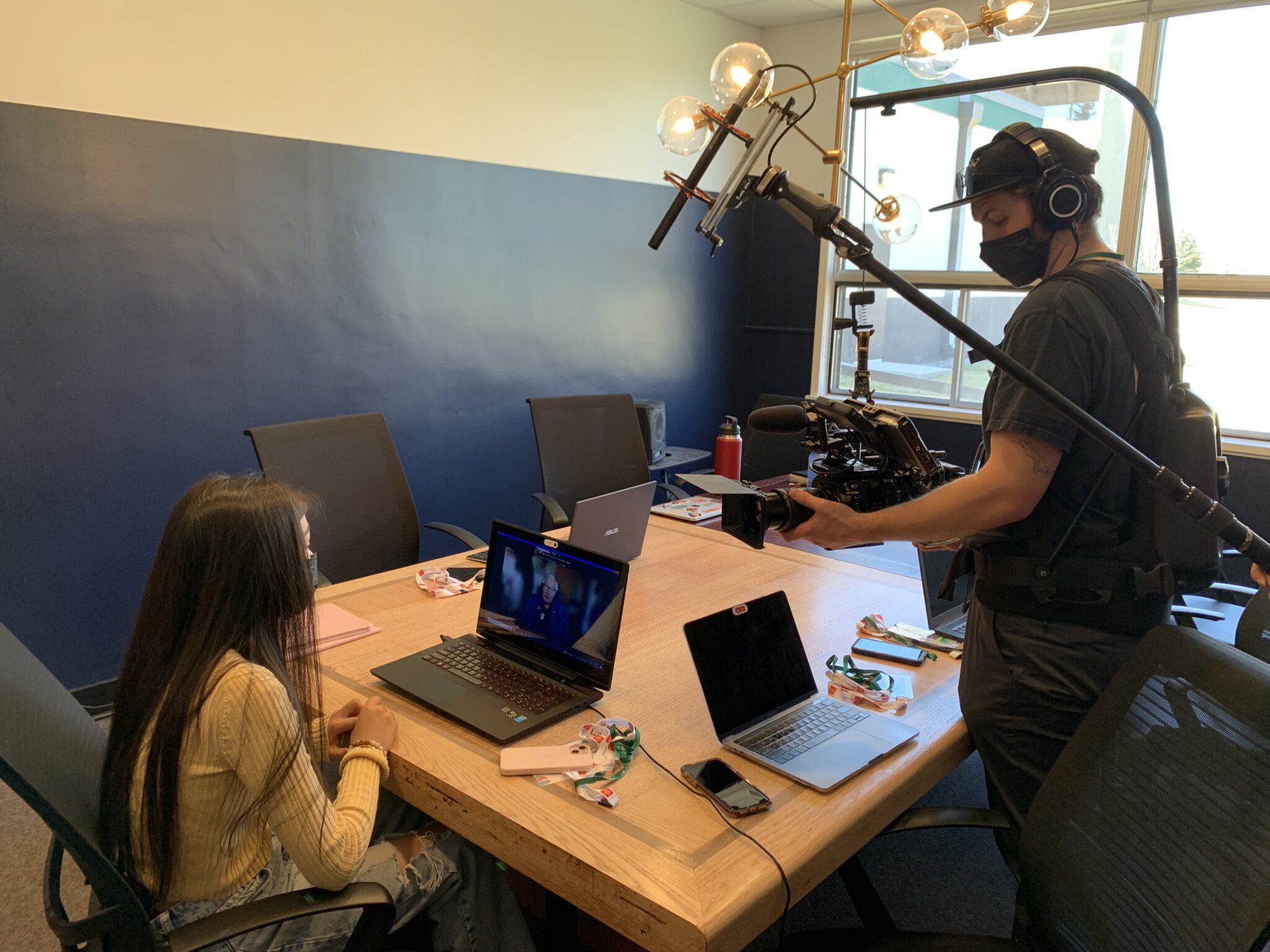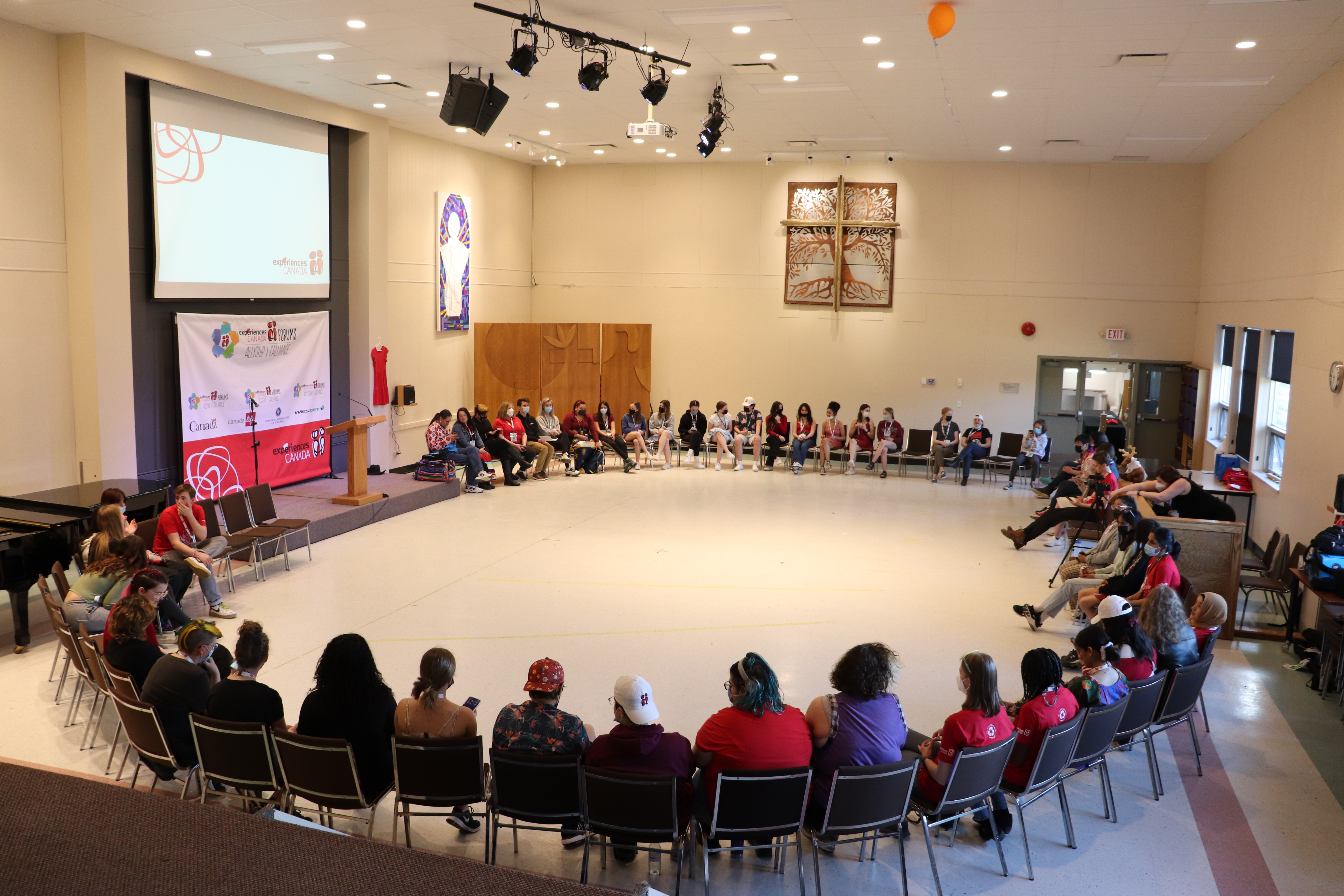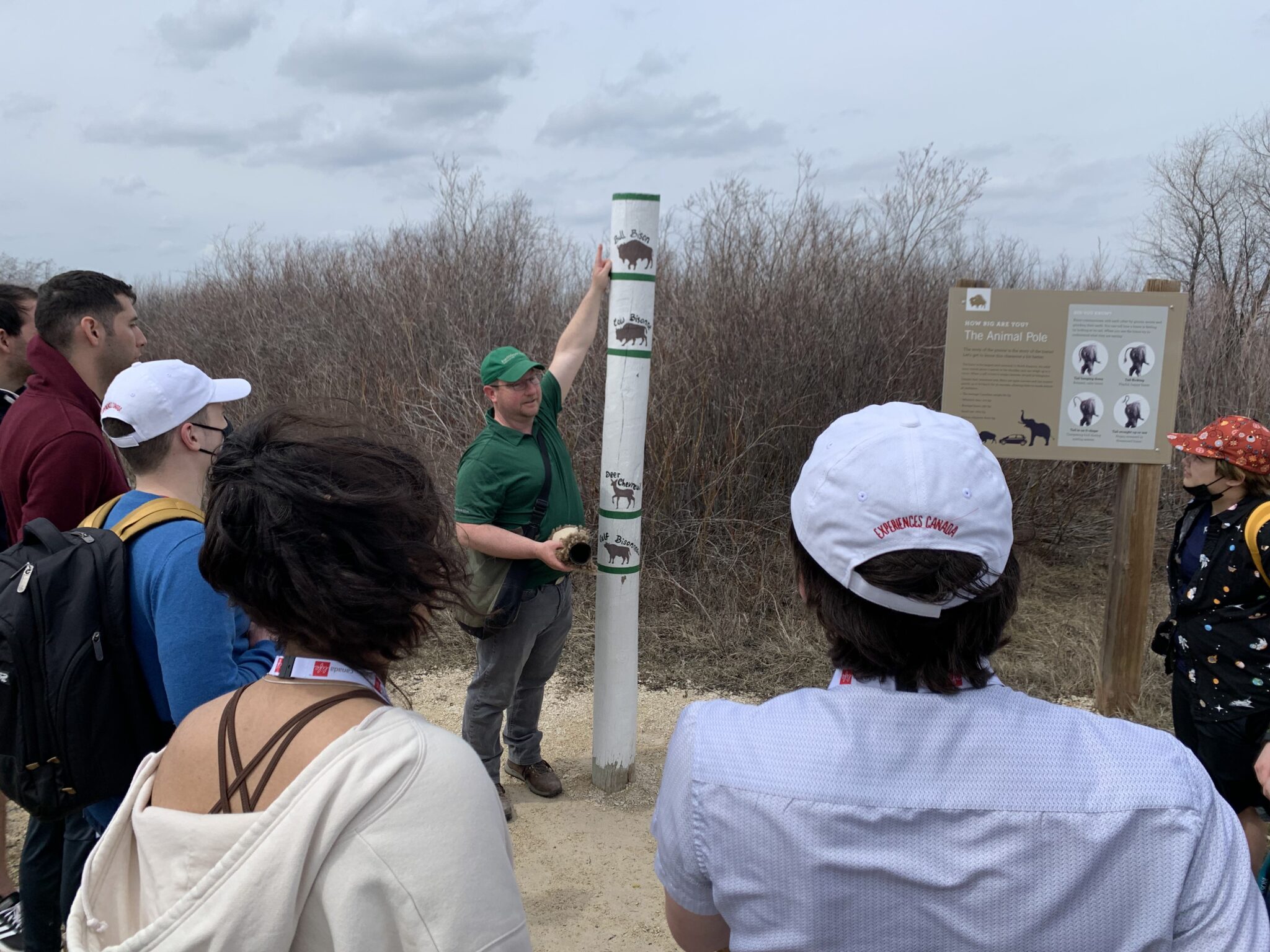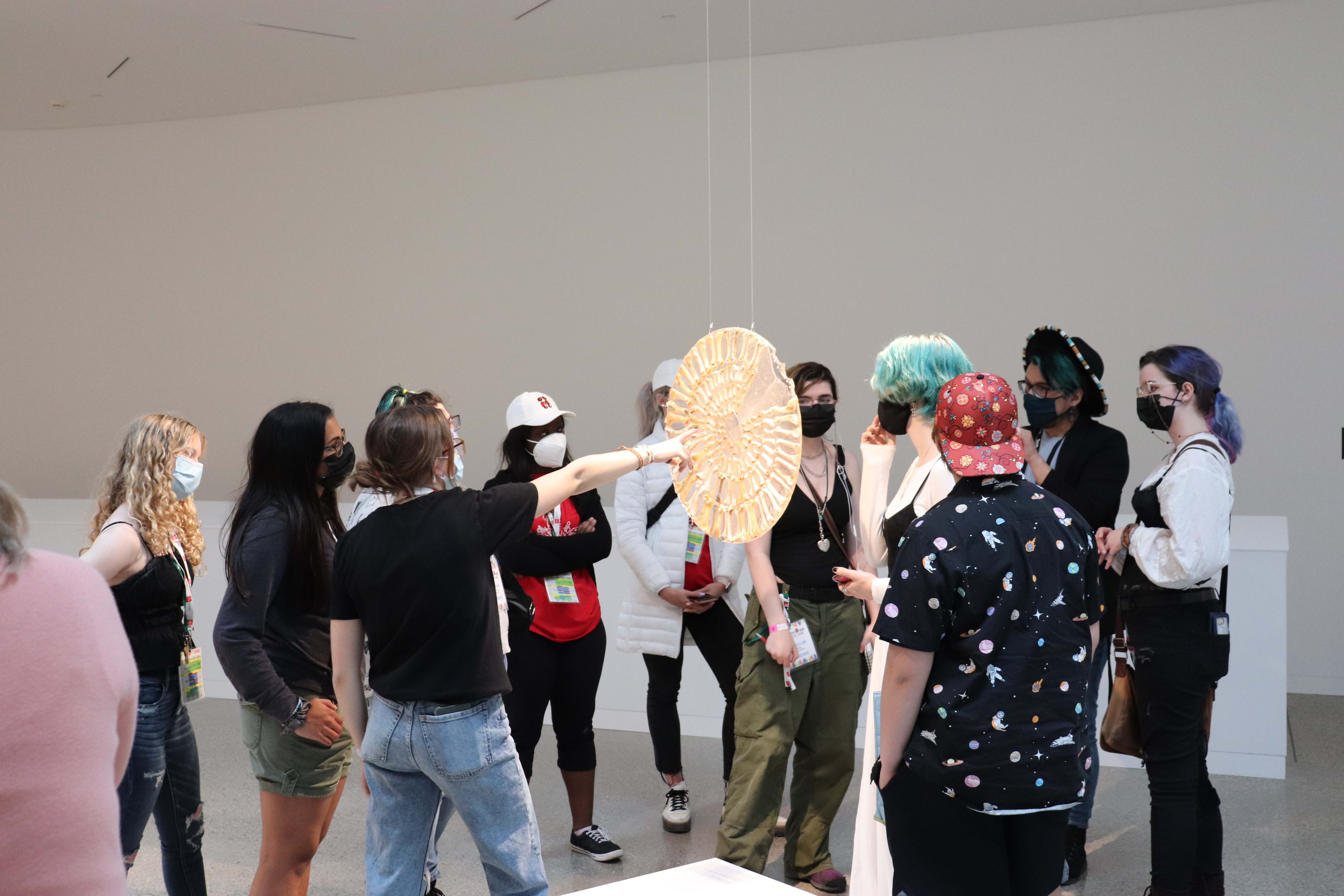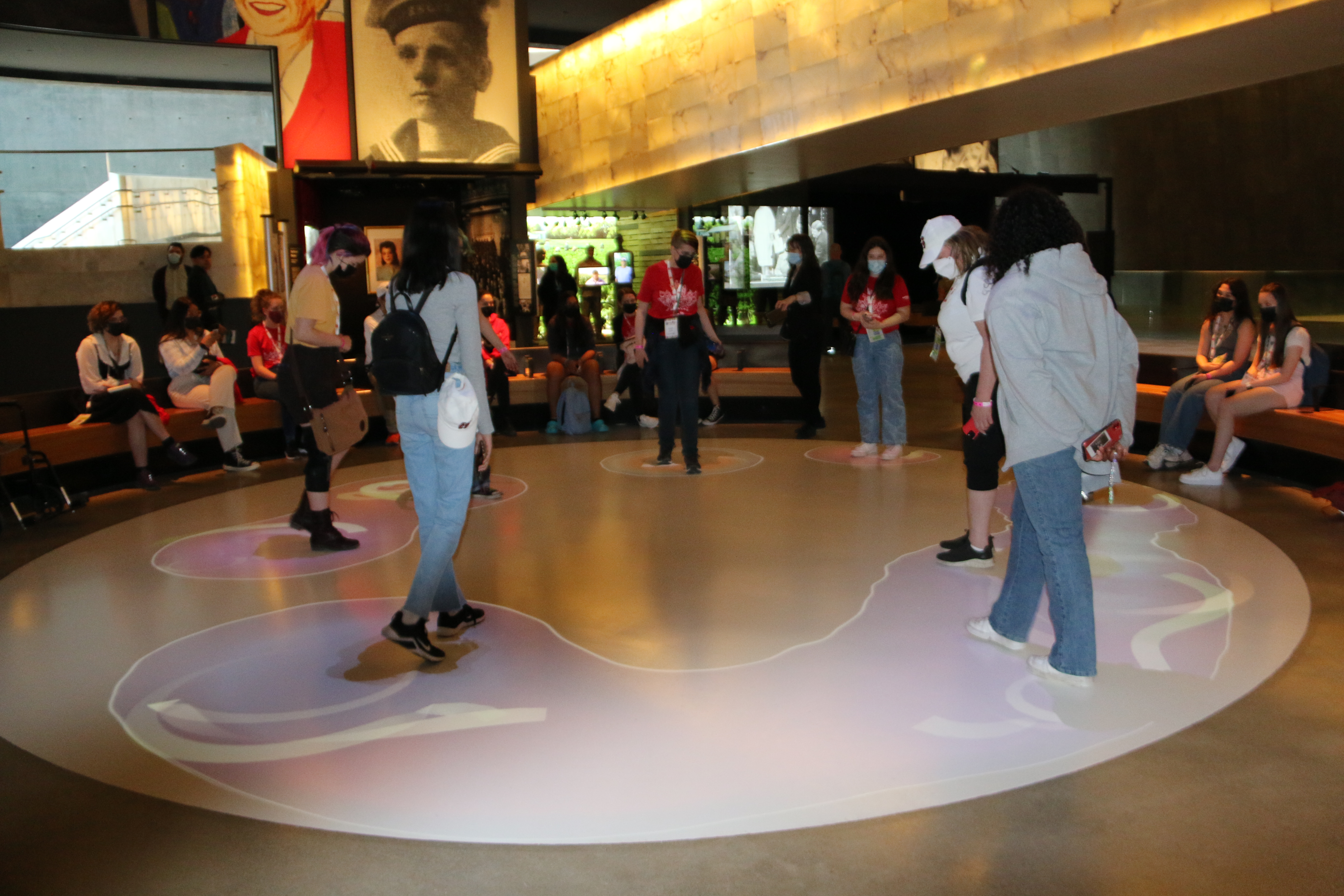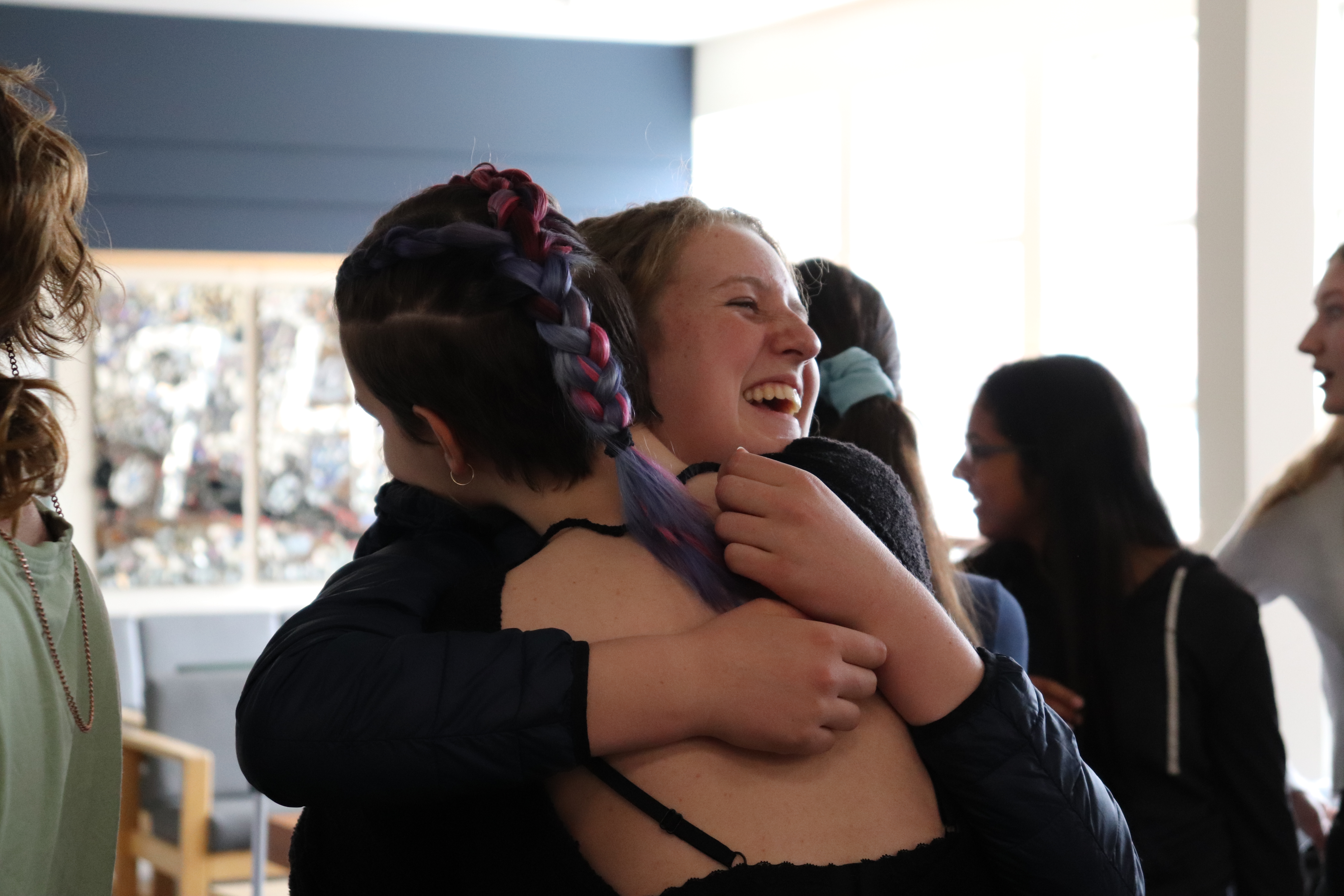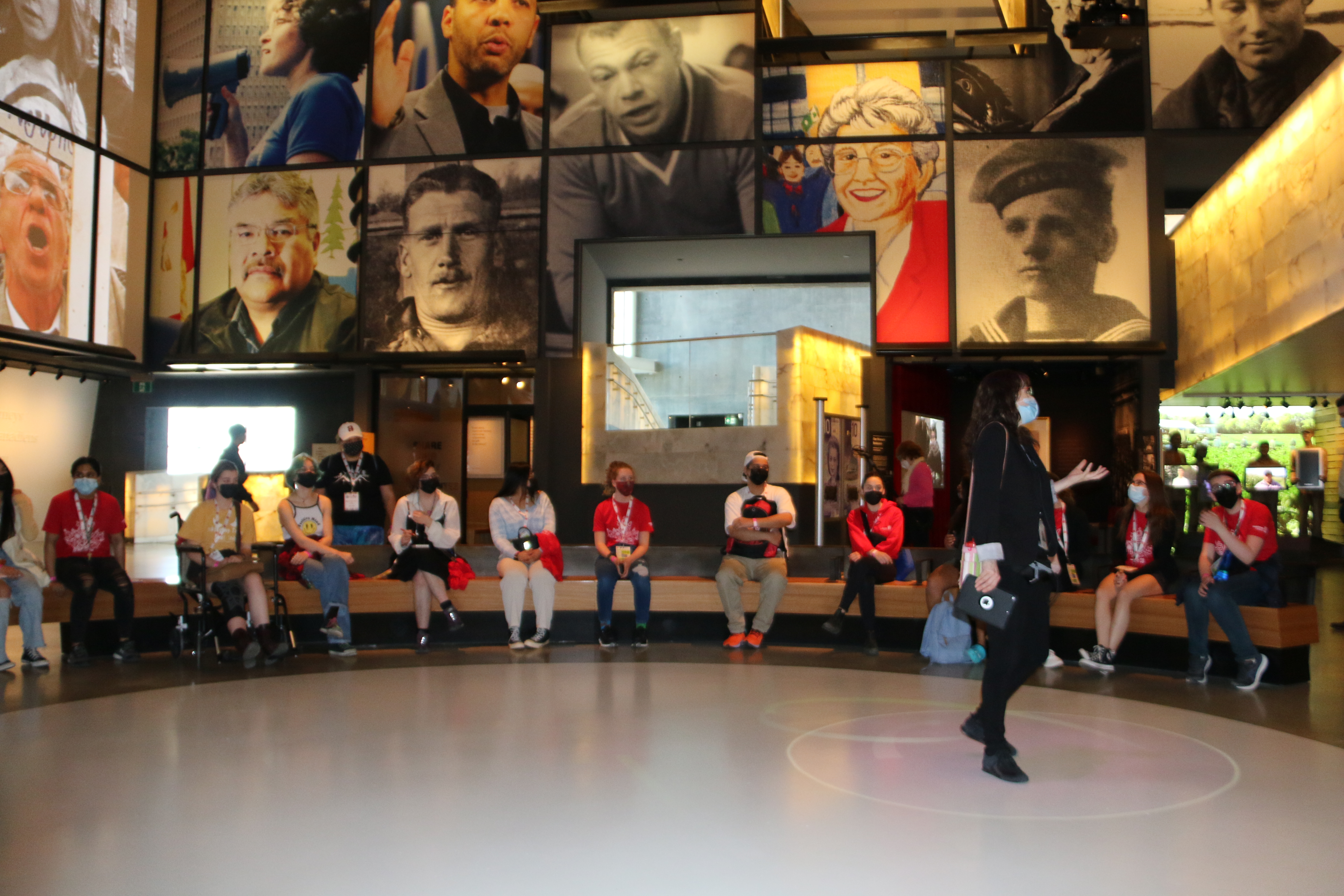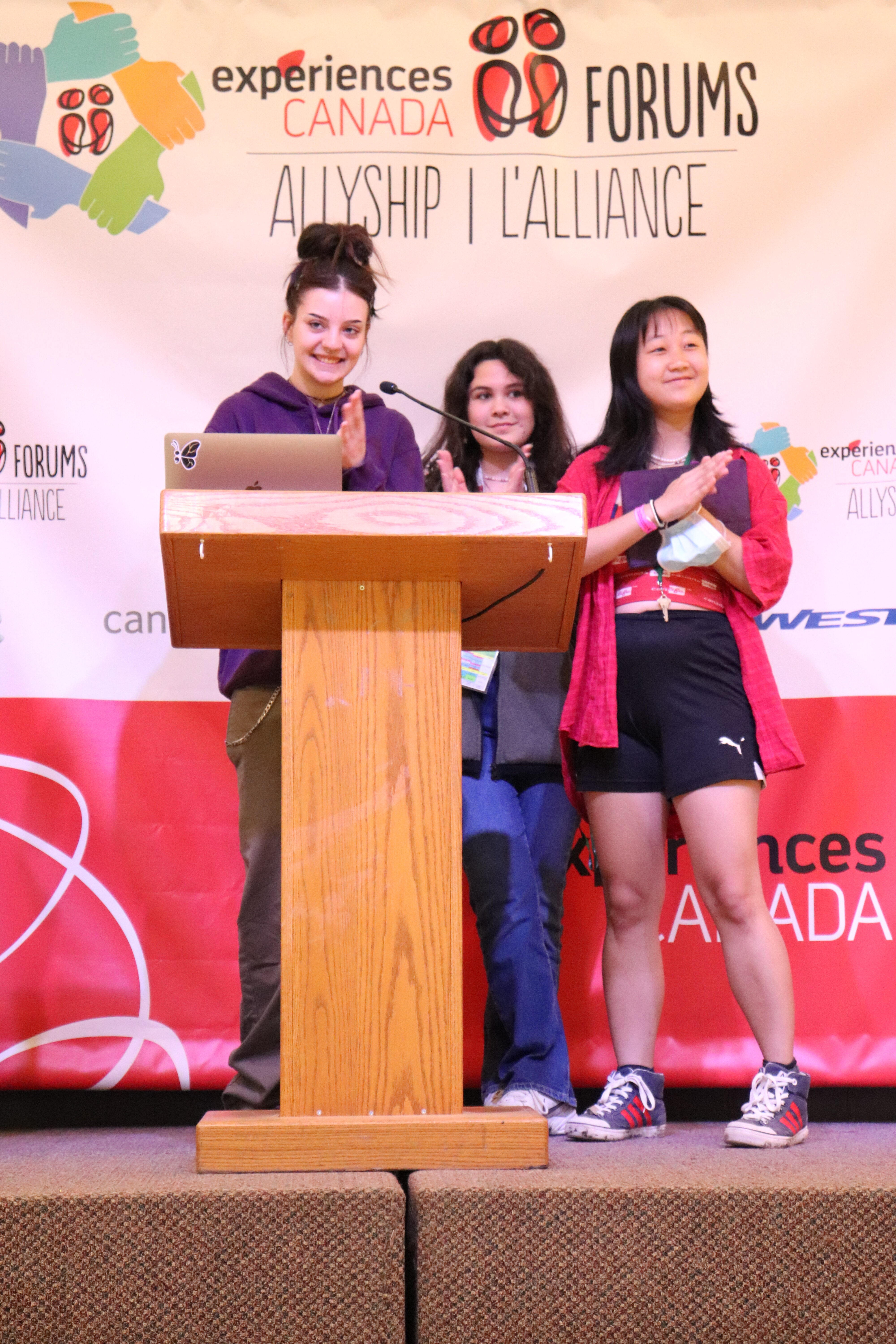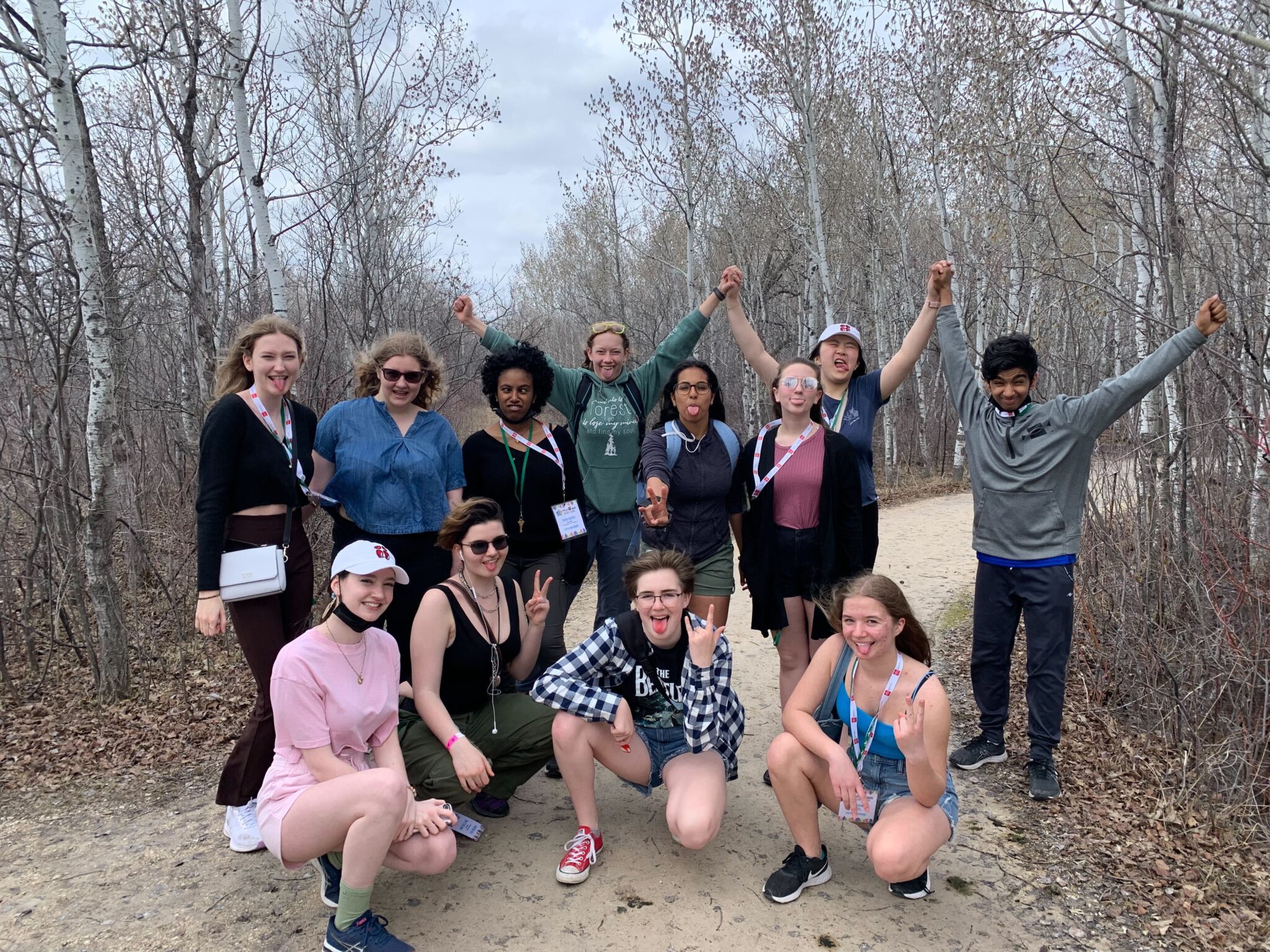
National Youth Forum 2024
Welcome to the Experiences Canada National Youth Forum, an extraordinary opportunity for youth ages 15-18 to embark on a transformative journey of discovery and connection. In 2024, delve into the critical theme of Reconciliation against the backdrop of Ottawa, Ontario, where Indigenous entrepreneurs, leaders, knowledge keepers, and residential school survivors will share their stories. With all major costs covered, our Forum will bring together 50 passionate youth from each province and territory, fostering friendships, building an alumni support network, and offering a chance to become leaders, volunteers, and mentors. Join us for an unforgettable experience that goes beyond borders, introducing hundreds of teens to the rich tapestry of Canadian regions, cultures, and histories.
We are incredibly grateful for the high number of applications received for the National Youth Forum 2024. Given the high demand applications are now closed.
Theme: Reconciliation
July 3-7, 2024 | Ottawa, Ontario
Open to youth ages 15-18
Experiences Canada is excited to be able to bring youth together for this innovative Forum. A total of 50 youth between the ages of 15-18 from each province and territory will be selected to attend four bilingual, expert-led pre-forum webinars on topics related to Reconciliation (2024) followed by in-person, multi-day events and activities focused on the same two themes in each city.
Building on the success of our 2022 Allyship Forum in Winnipeg, participants in the 2024 Forum on Reconciliation will hear from Indigenous entrepreneurs, leaders, knowledge keepers, elders, and residential school survivors.
Expected Outcomes:
- 50 teens introduced to new regions, cultures, histories of Canada
- Friendships and an alumni support network – for life
- First-hand learning from experts in reconciliation
- Opportunity to visit cultural institutions, historical sites, and locales unique to Ottawa and surrounding regions
- Participant produced podcasts on their experiences from the Ottawa Forum
- Library of free learning resources on the themes available before, during and after the Forum
- Opportunities to become youth leaders, volunteers, and mentors
Webinar 1: Economic Reconciliation
This webinar will introduce the concept of economic reconciliation in a way that is appropriate for an audience of youth between the ages of 12 and 18. Subsequent webinars addressing sub-themes of entrepreneurship, environmental stewardship and the impacts of residential schools will also be covered through the lens of economic reconciliation, as will the in-person events in Ottawa for youth participants in early July, 2024.
In this session, our goal is to lay the foundations of understanding why economic self-determination of Indigenous Peoples is integral to reconciliation, and how it is beneficial for both Indigenous peoples and settlers. Closing the socio-economic gap between Indigenous and non-Indigenous Canadians would yield a $27.7B contribution to the GDP in Canada according to the 2019 Indigenous Economic Progress Report. The National Indigenous Economic Strategy is designed to drive positive change, address long-standing inequities, and achieve inclusive growth for and with Indigenous communities.
Webinar 2: Indigenous Entrepreneurship
This webinar will build on the introduction of the concept of economic reconciliation covered in the first webinar. The goal is look at Indigenous entrepreneurship in the context of broader economic reconciliation and the growth of Indigenous owned start-ups and businesses in non-traditional sectors like fashion, IT, construction, marketing, transportation and many others. The growth and prosperity of Indigenous-owned business will benefit not only Indigenous communities but all of Canada as well, and as such is a key component of economic reconciliation.
According to Carole Anne Hilton (founder of the Indigenomics Institute), entrepreneurs play a major role in the Indigenous economy by providing growth opportunities but also by creating a new cultural narrative.
Webinar 3: Environmental Reconciliation
This webinar will build on the first two webinars in this series, which have introduced the broader concept of economic reconciliation, and the role that Indigenous entrepreneurship plays in economic reconciliation. The goal of this webinar is to look at the environment through the lens of economic reconciliation, and how environmental stewardship is a key component of successful economic growth and prosperity.
Many corporations and companies in Canada have significant operations that have an impact on our environment. We often hear in the news of stories where economic activity and the development of new projects (particularly natural resource-based initiatives) are in conflict with Indigenous communities. True partnerships between corporations and Indigenous communities are bound to be beneficial to the country as a whole, making industries stronger via responsible environmental stewardship and the growth of local economies.
Webinar 4: Residential Schools and their impact
This webinar is the fourth in the series on the theme of economic reconciliation and will build on the previous webinars covering the concept of economic reconciliation, the role of entrepreneurship and how to address environmental stewardship in the context of economic growth. This fourth webinar will look at the lasting impacts of residential schools and the role education will play in economic reconciliation, in a way that is age appropriate for the participants who are between the ages of 12 and 18. Given the sensitive subject matter related to residential schools, it is important that the material be approached in a way that is appropriate to the age and maturity of the participants.
Residential schools were government-sponsored religious schools that were established to assimilate Indigenous children into Euro-Canadian culture. In total, an estimated 150,000 First Nation, Inuit, and Métis children attended residential schools, the last of which closed in 1996. In 2021, the federal government made 30 September a federal statutory holiday to be observed annually as the National Day for Truth and Reconciliation to honour the survivors of residential schools and their families. In honour of Phyllis Webstad, a residential school survivor, this day is marked by the wearing of orange shirts to commemorate all the children who had their culture taken away from them.
While residential schools are a devastating part of our shared history, education will play a role in reconciliation, and particularly in economic reconciliation, as there is still an education attainment gap between Indigenous and non-Indigenous people.
Introducing our Webinar Speakers
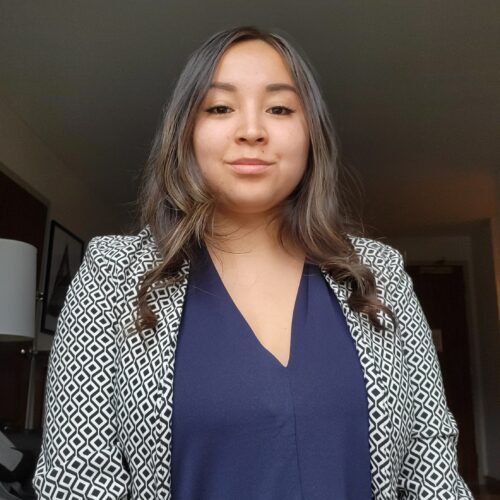
Kalyne Beaudry
Webinar 1: Economic ReconciliationKalyne Beaudry is Anishinaabe kwe (Ojibwe) from Wiikwemkoong Unceded Territory on Manitoulin Island located in Ontario. Although currently based in Ottawa, Kalyne works with national Indigenous organizations and First Nations locally to advance the rights of First Nations peoples. Her education background consists of a Diploma from Algonquin College, and a Bachelor of Arts Degree with a Concentration in Business Law and Minor in Indigenous Studies from Carleton University. She is currently enrolled with the University of British Columbia to advance her communication skills.

Candice Loring
Webinar 1: Economic ReconciliationAs Genome BC’s Director of Indigenous Relations and Initiatives, Candice Loring K’wiloo’km N’kwala is working to advance the Indigenous innovation ecosystem. Candice is also an Adjunct Professor in the Faculty of Management at UBC Okanagan. She held the role of Senior Advisor, Indigenous Relations & Initiatives in Equity, Diversity & Inclusion at Mitacs.
As a proud member of the Gitwangak band from the Gitxsan Nation in Northern British Columbia, Candice’s passion for small businesses and entrepreneurship, along with her background in business management, has allowed her to expertly guide and support hundreds of organizations through collaborative innovation projects in her position at Mitacs.
Through her commitment to advancing the national Indigenous innovation and entrepreneurship ecosystem, Candice serves on numerous councils and committees, including the Indigenous Advisory Council for the Oceans Supercluster, the Greater Vancouver Board of Trade Diversity and Inclusion Leadership Council Advisory Committee, and Minerva BC.
In 2021, Candice was recognized as one of Canada’s most inspirational women entrepreneurs and business leaders by Canadian SME Small Business Magazine for her economic development work in Indigenous communities. She is a Ch’nook scholar scholarship recipient named Kelowna’s 2022 BDO Top 40 Under 40. Candice was also named UBC Okanagan’s Faculty of Management Alumni Builder Award recipient in 2023.
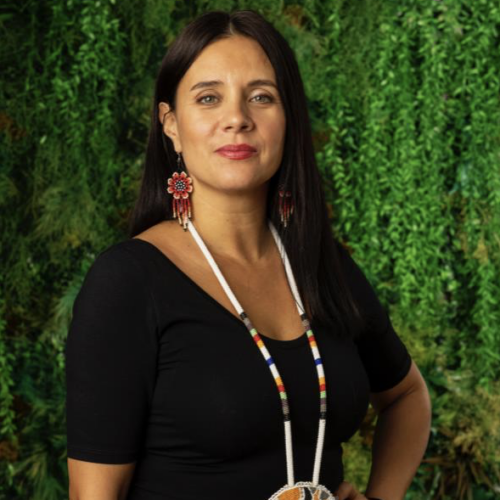
Christa Bruneau Guenther
Webinar 2: Indigenous EntrepreneurshipBorn and raised in Winnipeg Manitoba, Christa Guenther, Saulteaux Cree French Metis and proud member of Peguis First Nation has spent over 25 years refining her cooking and gardening skills and expanding her knowledge of First Nation and Metis Indigenous foods. She is a homecook turned restaurateur whose passion and creativity are woven into the fabric of her restaurant and catering company at Feast Cafe Bistro. Christa is also the Co-Chair of ICAN (Indigenous Culinary Association of Nations) board of directors.
Christa opened Feast with a focus on becoming a pillar in the community. She wants each visitor to experience modern dishes rooted in traditional First Nations and Metis traditional foods while celebrating the spirit of her culture and ancestors. She uses her platform to be a leader in community lead initiatives. In the eight years since opening, her recipes have been featured in publications such as Canadian Living and Chatelaine, and has regular appearances on The Marilyn Dennis Show as well as on Food Network Canada.
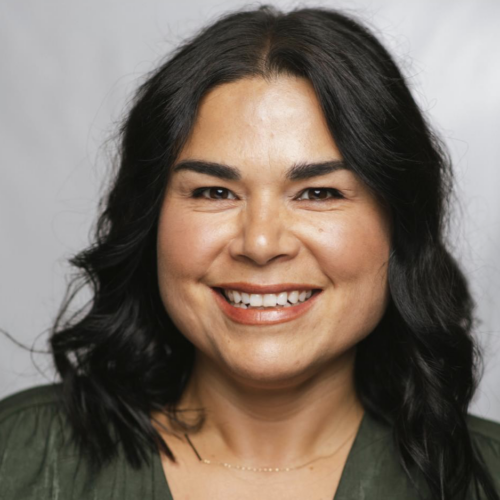
Jenn Harper
Webinar 2: Indigenous EntrepreneurshipJenn Harper is not just a name in the beauty industry; she’s a revolution. An award-winning social entrepreneur and international speaker, Jenn is the trailblazing founder and CEO of Cheekbone Beauty Cosmetics—a brand that has gracefully painted the ideals of sustainability and inclusion onto a global canvas. From its inception in 2015, Jenn has nurtured Cheekbone Beauty into a B. Corp Certified force, now gracing the shelves of Sephora Canada and 550 JC Penney locations across the USA.
Jenn’s journey with Cheekbone began as a digitally native, direct-to-consumer brand that took pride in its commitment to reducing environmental impact and supporting Indigenous communities. Her formidable leadership made sure Cheekbone stood out not only for its stunning products but also for its ethical backbone—it became a symphony of transparency, philanthropy, and support for women and youth. To date, over $250,000 have been donated to philanthropic causes, testament to Cheekbone’s core values.
Cheekbone’s prestige has been hard-earned. In 2019, Jenn Harper made a confident appearance on Canada’s Dragon’s Den, the nation’s equivalency of Shark Tank. While she turned down offers, her unwavering resolution steered Cheekbone towards exponential growth. Jenn’s tactical negotiations led to expansive contracts with major retailers in North America, shining a beacon of inspiration for Indigenous women by placing an Indigenous CEO-led brand on equal footing with global industry giants.
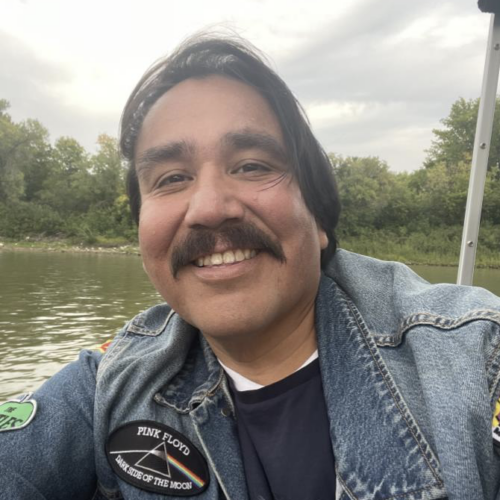
Clayton Thomas-Müller
Webinar 3: Environmental ReconciliationClayton Thomas-Müller is a member of the Treaty #6 based Mathias Colomb Cree Nation also known as Pukatawagan located in Northern Manitoba, Canada. Based in Winnipeg. He has been recognized by Yes Magazine as a Climate Hero and is featured as one of ten international human rights defenders in the National Canadian Museum for Human Rights. He has campaigned across Canada, Alaska and the lower 48 states organizing in hundreds of First Nations, Alaska Native and Native American communities to support Indigenous Peoples to defend their territories against the encroachment of the fossil fuel industry with a special focus on stopping the expansion of the Canadian tar sands and its associated pipelines. Clayton is an award-winning film director, media producer, organizer, facilitator, public speaker and bestselling author on Indigenous rights and environmental & economic justice. His book, Life in the City of Dirty Water, was a national bestseller and a CBC Canada Reads finalist.

Susan Beaudin
Webinar 4: Residential School SystemSusan is a Cree/Anishinabe woman from the Cowessess First Nation in Saskatchewan. She is a 3rd generation survivor of Marieval and Qu’Appelle (Lebret) Indian Residential Schools. She has researched childhood trauma and how trauma experienced in residential schools has affected the lives of survivors, their children, grandchildren and First Nations’ communities. She has worked in education for over 35 years. She has a Bachelor of Education, Post Graduate Diploma in Educational Administration, and a Master of Education. Her experience includes primary teacher, superintendent, director, assistant professor, treaty education consultant, and curriculum writer. Susan continues to work with Saskatchewan Cree, Anishinabe, Dene, Nakota, Dakota, Lakota and Siksika First Nations’ Elders (Alberta) in developing teacher resources and curriculum. She was blessed to work with Elders and Knowledge Keepers for over 35 years. She worked for the Saskatchewan Office of the Treaty Commissioner and developed the K – 6 and 7 – 12 treaty education learning resources and the renewed K – 9 treaty education resources. The Saskatchewan Ministry of Education has mandated that teachers within the province to include these resources in their teaching. Susan worked for Kairos Canada and Regina Roman Catholic Schools promoting truth and reconciliation through Blanket Exercises and sharing her residential school experiences. She is currently working with Cowessess First Nation to decolonize school policies to create a safe school for children on her nation. She also volunteers as a member of the Truth and Reconciliation Committee at the Archdiocese of Regina. She is a mother of two, a grandmother of 5 and a great grandmother of 5. She feels that she has had many blessings in her life despite the many challenges she has faced in her personal life.
Youth Leaders
Our Youth Leaders act as hosts, mentors, chaperones and workshop facilitators for the duration of the program. Youth Leaders assist in the planning and preparation of the webinars, advising and participating in the creation of the online workshops and supplementary tools and resources, and leading podcast production teams. Youth leaders play an important role in facilitating various program activities and mentoring youth through their final podcast or webinar presentation.
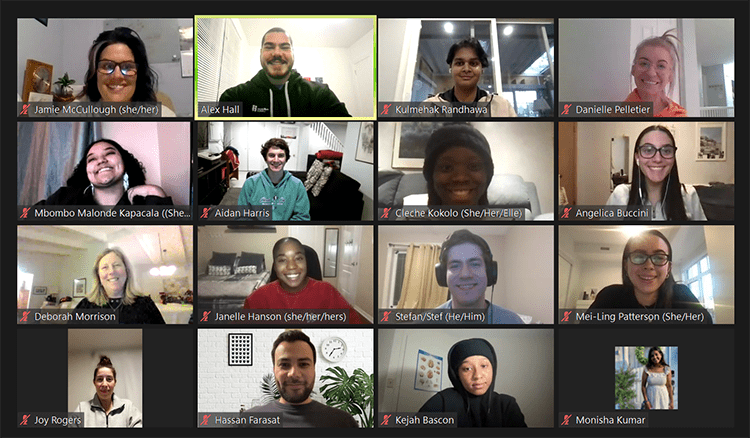
Thanks to Our Funders
This program would not be possible without the generous support of our funders.
We thank our 2024 program partners
We acknowledge the financial support of the Government of Canada.

You can help ensure our programs are accessible to all. Please consider making a donation, allowing youth to stay connected and participate in our programs.
